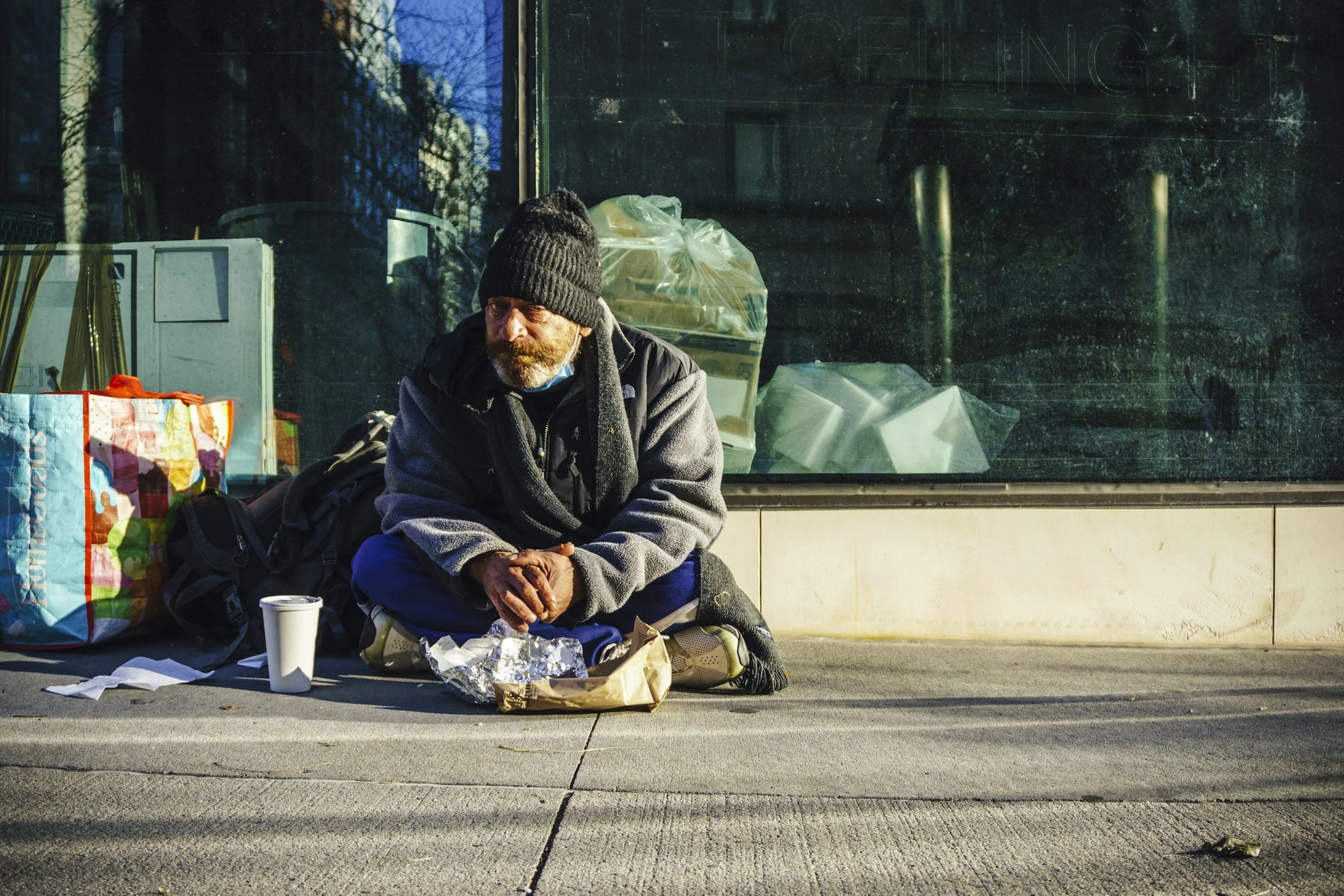Should I give money to someone sleeping rough?
We have all encountered people sleeping rough and wondered how we can help.
One argument you often hear is that if you give money to someone on the street, they’ll just spend it on alcohol or drugs. Whilst it is wrong to assume that every homeless person will do this, it is still a possibility - we should also consider that a lot of the time, rough sleepers spending money on substances are doing so because they are in the throes of addiction, and withdrawal symptoms can range from unpleasant to fatal, not to mention the humiliation and discomfort of experiencing them in public. Generally, however, if someone is begging, usually they are trying to get themselves basic essentials.
“They’re actually trying to get money to go and buy what they need, such as food, water, clothing, toiletries, or accommodation. And they’re not stealing from anyone or from any shops,” says St Mary’s House of Welcome Homelessness Program Manager Mark Donchi.
“Being asked for money by a person who is homeless is no different to being stopped in the street by anyone else asking for help with something.”
A 2020 survey run by Pro Bono Australia found that 62 per cent of respondents believed that drug addiction was the leading cause of homelessness in Australia but in reality, drug misuse accounts for only six per cent of homeless cases. Homelessness is multifaceted and widespread, affecting more people than we think. The Australian Human Rights Commission says homelessness is caused by a variety of factors:
Homelessness is often a product of other human rights abuses such as poverty, violence and a lack of affordable housing
Domestic violence is one of the leading causes of homelessness in Australia
Health issues such as mental illness and social isolation can also contribute to the problem of homelessness
Circumstances in life such as the death of a loved one, job loss or relationship breakdowns can trigger a chain of events that leads to homelessness
Housing shortages and the lack of affordable housing is the leading cause of homelessness
“Everyone has their own story, their own reasons for being homeless. If you’re not comfortable giving money or aren’t able to, you can still engage and be polite. At least make eye contact and say hello, as opposed to ignoring people who are sleeping rough,” says Donchi.
Your money could provide immediate relief by enabling a person who is homeless to purchase necessities such as food, water, clothing, or toiletries – something they could not do otherwise. Donations can empower someone experiencing homelessness by giving them agency over their own circumstances. They can choose to spend the money how they like.
“So many choices are taken away from you when you are homeless. By allowing people to choose how to spend the money, you acknowledge their autonomy and dignity,” says Donchi.
“Offering money can also encourage a sense of human connection and empathy, acknowledging people’s dignity and worth as individuals. Those we work with often tell us how isolating it can be rough sleeping and how they feel invisible. When you give money, you might be their only positive interaction that day and your small gesture might make them feel seen and valued. If you can't give someone your spare change, offer food or a water. If you can't, it's okay to say no. If you can't stop, a simple "I'm so sorry, I’ve got no change" is much better than being ignored.
“I doubt you will ever encounter homeless people that are invasive or intrusive, they’re not encroaching on anyone’s space, and they’re generally understanding of the fact that most people don’t carry cash on them since COVID,” Donchi says.
“Whether they’re window washing or begging, they are just doing whatever they can to get by. Homelessness is not a lifestyle choice by any means”.
In short, there is no straightforward answer to the question: should I give money to someone sleeping rough?
If you don’t feel comfortable giving people cash, providing them with food or asking if there’s something they’d like from a shop instead, might be a better alternative. This is a great option if you have no cash on hand - food, wet wipes or hand gel, hot drinks, sleeping bags or new clothes can all be a lot of help to someone living on the street. Others would say the most effective way to help homeless people is to donate the cash you would give to them to organisations that are expert in helping instead.
There are several ways to provide long-term help:
· Donating to an organisation such as St Mary’s House of Welcome means your money goes further in supporting the most vulnerable people in society by equipping them with accommodation, medicine or clothing.
· Volunteering your time with a local organisation can help with relief efforts and provide much-needed human resources.
· Raising awareness and partnering with efforts to spread the word about homelessness and various initiatives go a long way in providing people with care.
· Recycling your pre-loved clothes and dropping them off in a clothing bin helps minimise waste and provide resources for people in need.

